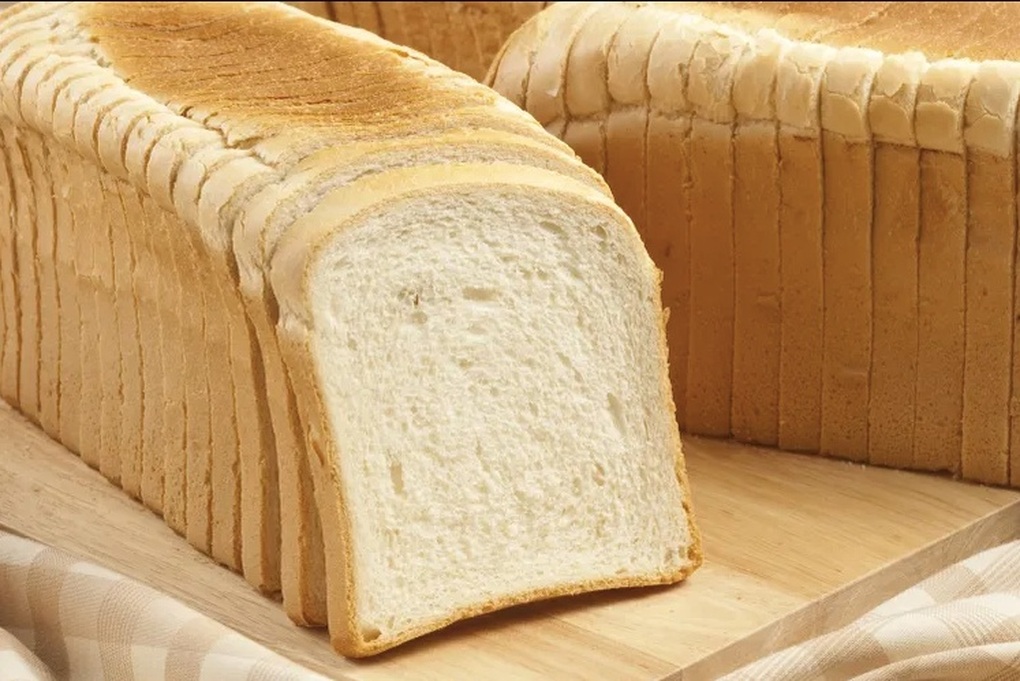3 potential health risks of eating white bread
Research shows that regularly eating white bread can increase the risk of conditions such as type 2 diabetes, obesity and heart disease.
Increases blood sugar and risk of diabetes
According to Verywell Health , white bread is a simple carbohydrate that is high in sugar. The body quickly breaks it down for energy, creating a quick burst and spike in blood sugar.
When your body breaks down carbohydrates, it converts them into glucose, raising your blood sugar levels. After your blood sugar levels rise, they quickly drop, leaving you feeling sluggish and tired.
Regularly eating foods that raise blood sugar levels increases your risk of chronic diseases, including heart disease, obesity, and type 2 diabetes.

Eating white bread regularly increases the risk of type 2 diabetes, obesity... (Photo: Gettyimages).
When white bread is processed, many of its nutrients are lost. Other types of bread contain complex carbohydrates and fiber. Whole wheat bread takes longer for the body to digest and does not cause a spike in blood sugar like white bread.
White bread has a high glycemic index, a measure of how much a food raises blood sugar. This leads to spikes and dips in blood sugar levels.
Lack of fiber is not good for intestinal health
Whole grains are carbohydrates that contain fiber and other nutrients that support a healthy gut. Because white bread has these nutrients stripped away during manufacturing, it doesn't offer the same digestive benefits.
Wheat has three parts: bran, germ, and endosperm. Manufacturers remove the bran and germ from the grain to make white bread, leaving only the endosperm. This process also removes fiber, vitamins, and minerals.
Fiber is a nutrient that helps stabilize blood sugar levels and promote feelings of fullness after eating. Diets high in fiber have been linked to a reduced risk of heart disease and improved gut health.
Fiber also promotes regular bowel movements and prevents constipation. White bread does not provide the same health benefits.
Contributes to weight gain and obesity
Eating white bread regularly can contribute to weight gain. One slice of white bread contains 73 calories. Because white bread lacks fiber and protein, it does not fill you up. This means you can eat a lot without feeling full.
White bread is a highly processed food made from refined flour. It often contains additives such as sugar and salt. While eating whole grains can help maintain a healthy weight, refined grains have been linked to weight gain and a higher risk of obesity.
White bread is made up of carbohydrates which our bodies need for energy. The body uses carbohydrates for fuel, an essential part of the diet.
Who should stay away from white bread ?
White bread is not a healthy choice for everyone:
Celiac disease
White bread contains a protein called gluten. People with celiac disease are intolerant to gluten and should avoid white bread. When people with celiac disease consume gluten, their immune system attacks and damages the small intestine.
Celiac disease, also known as gluten intolerance, is an allergic reaction to gluten-containing foods found in barley, oats, and wheat. Celiac disease causes reactions to gluten, causing the body to reject this substance, causing serious digestive disorders.
This is not a common disease but once contracted, it will leave extremely dangerous complications and consequences.
Gluten intolerance or sensitivity
People who are gluten intolerant but not celiac may also choose to avoid white bread, which can cause unpleasant symptoms like bloating.
Diabetes
White bread may not be the best choice for people with diabetes or other conditions that affect blood sugar. Because it causes blood sugar spikes, eating white bread can make it harder to control diabetes.
Experts recommend that adults try to eat white bread in moderation and consider pairing it with foods rich in protein or fiber to help stabilize blood sugar levels.
Source: https://dantri.com.vn/suc-khoe/banh-mi-trang-mon-quen-thuoc-nhung-3-nhom-nay-can-tranh-xa-20250905074653035.htm


![[Photo] Students of Binh Minh Primary School enjoy the full moon festival, receiving the joys of childhood](https://vphoto.vietnam.vn/thumb/1200x675/vietnam/resource/IMAGE/2025/10/3/8cf8abef22fe4471be400a818912cb85)




![[Photo] Prime Minister Pham Minh Chinh chairs meeting to deploy overcoming consequences of storm No. 10](https://vphoto.vietnam.vn/thumb/1200x675/vietnam/resource/IMAGE/2025/10/3/544f420dcc844463898fcbef46247d16)





























































































Comment (0)